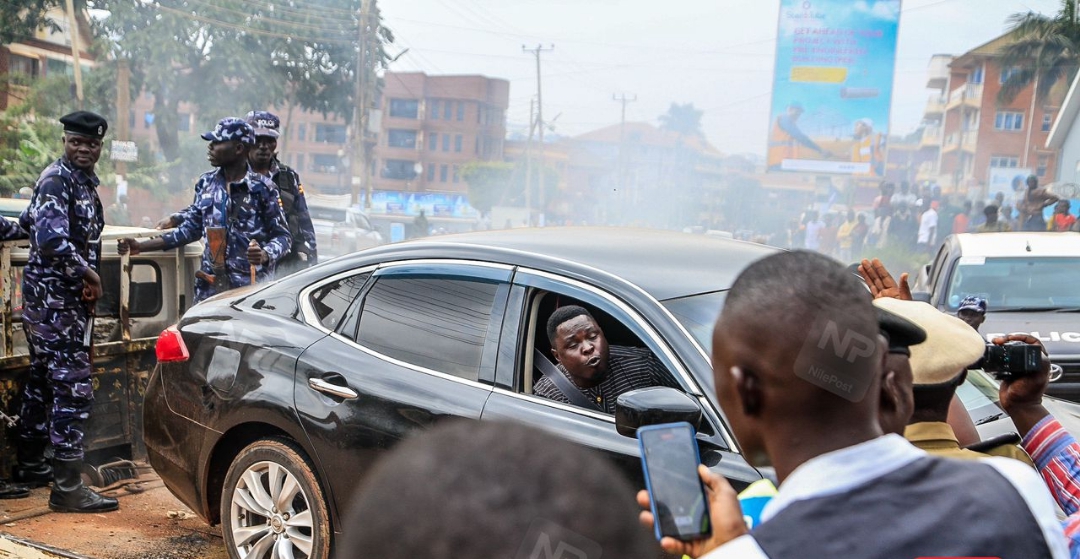MP Joseph Gonzaga Ssewungu of Kalungu County West has welcomed the upcoming March to Parliament with his trademark humor. Scheduled for 23rd July, the event has gained attention as Ssewungu assured potential protestors that refreshments will be available at the parliament canteen.
Reflecting on recent events where Speaker Anita Among permitted constituents from Lwemiyaga to stage a protest inside Parliament, Ssewungu encouraged Ugandans to join the upcoming march. He humorously suggested bringing placards with messages of their choice and emphasized the importance of a peaceful demonstration.
In his characteristic wit, Ssewungu quipped, “When you come to Parliament, feel free to enjoy the food and drinks available at the canteen.”
In a related development, police have taken action ahead of the planned anti-corruption march. They summoned and questioned four youths who were reportedly involved in organizing the protest. The meeting took place discreetly at the police headquarters in Naguru on Thursday.
The anticipated march to Parliament continues to gather momentum amidst political discussions and preparations, setting the stage for a potentially significant event in the country’s political landscape.
Corruption in the Parliament of Uganda remains a persistent and complex issue that deeply affects governance, public trust, and national development. Over the years, the parliament has been plagued by various forms of corruption, ranging from financial mismanagement to bribery, nepotism, and abuse of power. These issues have had profound consequences on Uganda’s democratic institutions and socioeconomic progress.
At the heart of corruption in Uganda’s Parliament is the misuse of public funds and resources. Earmarked budgets intended for development projects and social welfare often end up being embezzled or diverted through fraudulent schemes. This misappropriation not only deprives citizens of essential services but also perpetuates a cycle of poverty and inequality across the country. The lack of transparency and accountability exacerbates these issues, allowing corrupt practices to thrive unchecked.
Bribery is another prevalent form of corruption within the Ugandan Parliament. It undermines the integrity of legislative processes and compromises lawmakers’ ability to serve the public interest impartially. Influential individuals and businesses often offer financial incentives or other favors to parliamentarians in exchange for favorable legislation, contracts, or regulatory decisions. This practice erodes public trust in the legislative body and undermines the rule of law.
Nepotism and favoritism also contribute significantly to corruption in Uganda’s Parliament. Political appointments and the allocation of resources are often based on personal connections rather than merit or public interest. This results in inefficiencies, incompetence, and exclusion of qualified individuals from key positions, further weakening institutional capacity and hindering effective governance.
Moreover, the lack of effective mechanisms for oversight and accountability exacerbates the problem of corruption in Uganda’s Parliament. While regulatory bodies and anti-corruption agencies exist, they often face challenges such as limited resources, political interference, and insufficient independence to investigate and prosecute cases effectively. As a result, perpetrators of corruption frequently escape justice, reinforcing a culture of impunity and emboldening future misconduct.
The culture of impunity is reinforced by the perceived and actual lack of consequences for corrupt practices among parliamentarians and other public officials. In some cases, individuals found guilty of corruption may face minimal penalties or no repercussions at all, further undermining efforts to combat systemic corruption and deter future wrongdoing.
The impact of corruption in Uganda’s Parliament extends beyond economic and institutional harm to societal consequences as well. It exacerbates social inequalities, undermines public confidence in democratic institutions, and perpetuates poverty and disenfranchisement among marginalized communities. The perception that political and economic power is concentrated in the hands of a privileged few fuels resentment and social unrest, posing a threat to political stability and national unity.
Efforts to combat corruption in Uganda’s Parliament require comprehensive reforms addressing legal frameworks, institutional capacities, and political will. Strengthening transparency and accountability mechanisms, including robust financial disclosures, independent audits, and whistleblower protections, is essential to detecting and preventing corrupt practices. Additionally, promoting ethical leadership, civic engagement, and public awareness can foster a culture of integrity and responsibility among parliamentarians and citizens alike.
International cooperation and support for anti-corruption initiatives can also play a crucial role in addressing systemic challenges and promoting good governance in Uganda. By working together to strengthen institutional capacities, uphold the rule of law, and empower civil society, stakeholders can collectively combat corruption and promote sustainable development and inclusive growth in Uganda.
In conclusion, corruption in the Parliament of Uganda remains a significant impediment to democratic governance, economic development, and social justice. Addressing this multifaceted challenge requires concerted efforts to strengthen accountability, promote transparency, and uphold ethical standards within legislative institutions. Only through sustained commitment and collective action can Uganda effectively combat corruption and build a more prosperous and equitable future for all its citizens.














